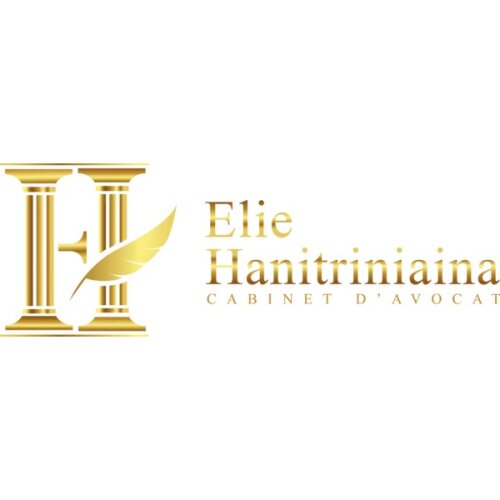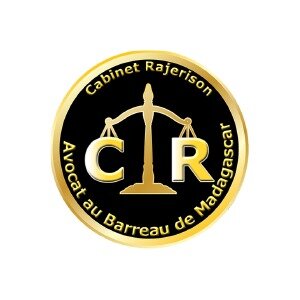Best Energy, Environment & ESG Lawyers in Antananarivo
Share your needs with us, get contacted by law firms.
Free. Takes 2 min.
List of the best lawyers in Antananarivo, Madagascar
About Energy, Environment & ESG Law in Antananarivo, Madagascar
The fields of Energy, Environment and Environmental, Social, Governance (ESG) law are rapidly growing areas in Antananarivo and Madagascar as a whole. These laws regulate the development, use, and management of natural resources, the generation and distribution of energy (including renewable energy), the protection and conservation of the environment, and the implementation of ethical business standards. Madagascar’s unique ecosystem and biodiversity require special legal attention to ensure sustainable development while upholding local and global best practices. For individuals and businesses in Antananarivo, understanding these laws is essential in order to comply with regulations, avoid penalties, and contribute positively to the country’s sustainability goals.
Why You May Need a Lawyer
Navigating Energy, Environment & ESG laws in Antananarivo can be complex. Here are some common situations where seeking legal assistance is highly recommended:
- Starting or operating energy projects, such as solar or hydroelectric installations
- Complying with environmental regulations for businesses, manufacturing, or construction
- Acquiring permits for land use, resource extraction or waste management
- Assessing environmental impact and managing Environmental and Social Impact Assessments (ESIA)
- Ensuring proper environmental remediation or restoration after projects
- Dealing with environmental disputes, such as pollution claims or land rights conflicts
- Aligning with ESG standards for responsible investing and corporate governance
- Representing communities or individuals affected by environmental or energy projects
A qualified legal professional can provide advice, facilitate compliance, protect your interests, and help resolve any disputes efficiently.
Local Laws Overview
Several key laws and regulations shape the landscape for Energy, Environment & ESG in Antananarivo and throughout Madagascar:
- Environmental Management Law (Law No. 90-033 of 21 December 1990): This mandates environmental impact studies and sets standards for environmental protection, aiming to preserve Madagascar’s unique biodiversity.
- Energy Sector Regulations: The energy sector is governed by national energy policies and laws, including Law No. 98-032 of 20 January 1999 concerning the energy sector, with a focus on promoting renewable energy, improving access, and ensuring sustainable development.
- Mining Code (Law No. 99-022 of 19 August 1999): Regulates the exploitation of mineral resources, including environmental impact assessments, community participation, and benefit-sharing.
- Pollution Control and Waste Management: Local and national regulations set standards for air and water pollution, hazardous waste management, and the safe disposal of industrial byproducts.
- Protected Areas Law: Specific legislation is in place to conserve national parks, reserves, and other protected areas.
- Corporate ESG Requirements: While Madagascar does not have mandatory ESG reporting laws for all companies, international investors and certain sectors may be subject to ESG disclosure obligations and sustainability best practices.
Compliance with national laws is enforced through several governmental bodies, and violations can result in significant penalties, project delays, or even license revocations.
Frequently Asked Questions
What is an Environmental Impact Assessment (EIA) and when is it required?
An EIA is a study to assess the potential environmental consequences of a proposed project. In Madagascar, it is mandatory for most large-scale developments, including energy projects, mining, and some commercial activities.
Can foreign companies invest in renewable energy projects in Antananarivo?
Yes, there are investment opportunities for foreign entities, but they must comply with national energy regulations, environmental laws, and potentially partner with local stakeholders.
What are the penalties for environmental violations in Madagascar?
Penalties can include fines, suspension of operating licenses, orders to undertake environmental remediation, or even criminal charges in severe cases.
How can communities protect their rights when faced with large energy or mining projects?
Communities have the right to participate in the consultation process as part of the EIA. Legal assistance can help voice their concerns, ensure fair compensation, and monitor compliance.
Is waste management regulated for businesses in Antananarivo?
Yes, businesses are required to manage waste according to local and national standards, with strict guidelines for hazardous waste and emissions.
How are ESG principles applied in Madagascar?
ESG, while not yet legally mandatory for all, is increasingly adopted as a best practice, especially for companies seeking international investment or operating in regulated sectors.
What should I do if I discover environmental damage caused by a company?
Report it to the National Office for Environment and seek legal advice to understand the avenues for remediation or compensation.
Are there tax incentives for green energy or sustainable practices?
There are incentives for renewable energy and some sustainable initiatives, though eligibility and conditions vary. A lawyer can help determine your eligibility.
What permits are required for starting an energy project in Antananarivo?
Several permits may be required, including environmental clearance, land use authorization, and sector-specific licenses.
How can I ensure my business is ESG-compliant?
Adopt transparent governance, implement social responsibility programs, and integrate environmental risk management. Consult a lawyer familiar with both local laws and global ESG standards.
Additional Resources
Here are some useful organizations and governmental bodies for those seeking information or support on Energy, Environment & ESG in Antananarivo:
- Ministry of Environment and Sustainable Development (Ministère de l'Environnement et du Développement Durable): Oversees environmental policy, permitting, and compliance.
- National Office for Environment (Office National pour l'Environnement - ONE): Responsible for environmental assessments and approving EIA reports.
- Ministry of Energy and Hydrocarbons: Regulates energy sector policies, licensing, and development programs.
- Chamber of Mines of Madagascar: Provides information and advocacy for the mining sector, including ESG issues.
- Local environmental NGOs and international organizations: Can offer guidance, advocacy, and support for compliance and best practices.
Next Steps
If you need legal assistance in the field of Energy, Environment & ESG in Antananarivo, here are your recommended next steps:
- Define your needs clearly - whether it is for compliance, dispute resolution, permits, or investment guidance.
- Collect all relevant documents and information related to your project or issue.
- Consult a qualified lawyer or legal firm specializing in Energy, Environment & ESG law. You may seek referrals from professional bodies or industry associations.
- Contact the appropriate governmental office (such as the National Office for Environment) if you require formal approvals or have regulatory questions.
- Stay informed about local law changes and industry best practices to ensure long-term compliance and sustainability.
A specialized lawyer can help you navigate the legal landscape, protect your interests, and foster sustainable, lawful growth in your energy or environmental endeavors in Antananarivo and Madagascar.
Lawzana helps you find the best lawyers and law firms in Antananarivo through a curated and pre-screened list of qualified legal professionals. Our platform offers rankings and detailed profiles of attorneys and law firms, allowing you to compare based on practice areas, including Energy, Environment & ESG, experience, and client feedback.
Each profile includes a description of the firm's areas of practice, client reviews, team members and partners, year of establishment, spoken languages, office locations, contact information, social media presence, and any published articles or resources. Most firms on our platform speak English and are experienced in both local and international legal matters.
Get a quote from top-rated law firms in Antananarivo, Madagascar — quickly, securely, and without unnecessary hassle.
Disclaimer:
The information provided on this page is for general informational purposes only and does not constitute legal advice. While we strive to ensure the accuracy and relevance of the content, legal information may change over time, and interpretations of the law can vary. You should always consult with a qualified legal professional for advice specific to your situation.
We disclaim all liability for actions taken or not taken based on the content of this page. If you believe any information is incorrect or outdated, please contact us, and we will review and update it where appropriate.
Browse energy, environment & esg law firms by service in Antananarivo, Madagascar
Antananarivo, Madagascar Attorneys in related practice areas.














